What is THCa?
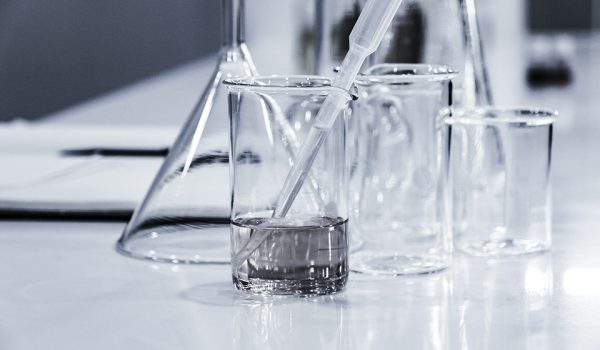
THCa is one of the many cannabinoids found in the cannabis plant. It is the precursor to THC, the well-known psychoactive compound responsible for the “high” associated with marijuana use.
Scientifically speaking, THCa itself is not psychoactive. However, once THCa is smoked or heated, it converts directly to THC via a process called decarboxylation.
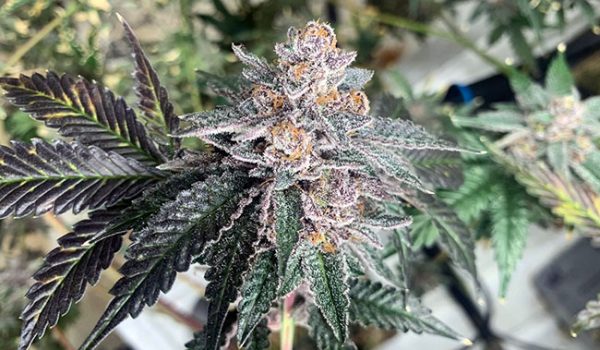
THCa Hemp looks, smells, and feels like marijuana. The only difference is that it’s 100% federally lawful.
Once heated, our THCa products are highly psychoactive. Therefore, you can expect the same experience from flower at your local dispensary.
Even better, we hand-select strains for their degrees of varying cannabinoids and terpene profiles, which allows us to predictably determine the effect any given cultivar is likely to produce.
Agriculture Improvement Act of 2018, aka the Farm Bill
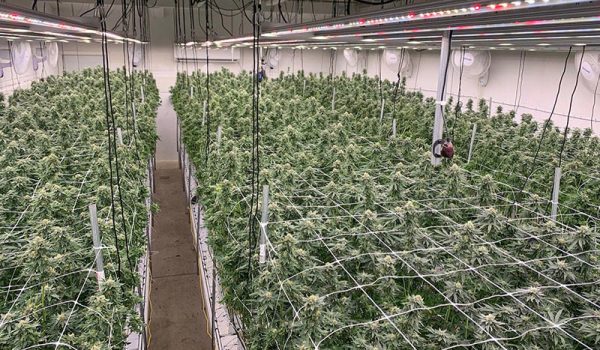
THCa is found in variable quantities in the trichomes of raw cannabis plants. At Opus Wellness, we grow indoors under optimal settings in Northern California and Southern Oregon and are committed to cultivating legitimately hand-crafted cannabis one harvest at a time.
The Agriculture Improvement Act of 2018, aka the Farm Bill, authorized the production of hemp and removed hemp and hemp seeds from the DEA list of Controlled Substances. As a result, THCa is federally lawful.
All Opus Products comply with the Farm Bill, which defines the legal limit as “no more than 0.3% Delta-9 THC on a dry weight basis.
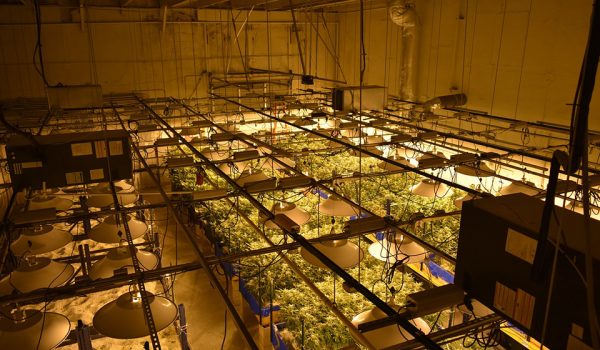
THCa: Understanding What It Is, How It's Grown, and How It's Consumed
THCa, the precursor to Delta-9 THC, is a non-psychoactive cannabinoid found in cannabis. It converts to Delta-9 THC through decarboxylation when heated. THCa is popular for its potential therapeutic benefits and lack of psychoactivity.
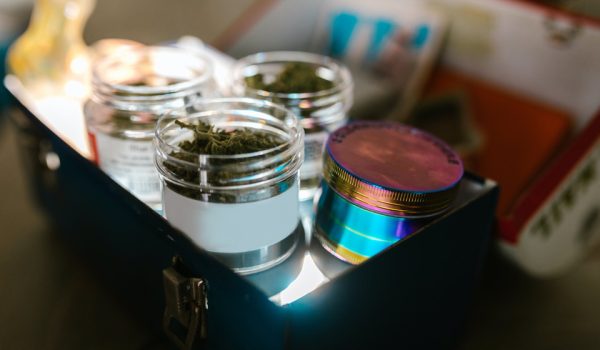
Converting THCa to Delta-9 THC
THCa converts to Delta-9 THC when heated above 240 degrees Fahrenheit. This process, known as decarboxylation, can occur through smoking, vaping, baking, or heating in concentrate form.
Use Coupon first20 to Get 20% Off Your First Purchase!

Whether you’re new to cannabis or a seasoned vet, there is plenty to learn about the different compounds and substances in the cannabis family.
Experts and users agree that THCa offers more potent effects than the Delta-8 version of the cannabinoid. While Delta-8 is perfect for a chill and controlled high, THCa offers a robust and familiar experience.
It’s the same as what you would expect from the highest quality flower at the world’s top dispensaries!
Quality Guaranteed
Still on the fence? Shop risk-free, knowing all Opus Wellness products are backed by our money back guarantee and backed by certificates of analysis. All of our products are rigorously tested and have current certificates of analysis available below:
19.373 % Total THC | 0.214 % Δ-9 THC | 19.999 % Total Cannabinoids
| Analyze | LOD | LOQ | Mass | Mass |
|---|---|---|---|---|
| % | % | % | mg/g | |
| Δ-9-Tetrahydrocannabinol (Δ-9 THC) | 0.0495 | 0.0743 | 0.214 | 2.139 |
| Δ-9-Tetrahydrocannabinolic Acid (THCA-A) | 0.0495 | 0.0743 | 19.373 | 193.733 |
| Δ-9-Tetrahydrocannabivarinic Acid (Δ-9-THCVA) | 0.0495 | 0.0743 | 0.098 | 0.980 |
| Cannabigerolic Acid (CBGA) | 0.0495 | 0.0743 | 0.172 | 1.723 |
| Cannabichromenic Acid (CBCA) | 0.0495 | 0.0743 | 0.142 | 1.416 |
26.556 % Total THC | 0.274 % Δ-9 THC | 27.349 % Total Cannabinoids
| Analyte | LOD | LOQ | Mass | Mass |
|---|---|---|---|---|
| % | % | % | mg/g | |
| Δ-9-Tetrahydrocannabinol (Δ-9 THC) | 0.0495 | 0.0743 | 0.274 | 2.743 |
| Δ-9-Tetrahydrocannabinolic Acid (THCA-A) | 0.0495 | 0.0743 | 26.556 | 265.564 |
| Δ-9-Tetrahydrocannabivarinic Acid (Δ-9-THCVA) | 0.0495 | 0.0743 | 0.075 | 0.752 |
| Cannabigerolic Acid (CBGA) | 0.0495 | 0.0743 | 0.363 | 3.634 |
| Cannabichromenic Acid (CBCA) | 0.0495 | 0.0743 | 0.079 | 0.792 |
27.619 % Total THC | 0.266 % Δ-9 THC | 28.720 % Total Cannabinoids
| Analyte | LOD | LOQ | Mass | Mass |
|---|---|---|---|---|
| % | % | % | mg/g | |
| Δ-9-Tetrahydrocannabinol (Δ-9 THC) | 0.0461 | 0.0691 | 0.266 | 2.664 |
| Δ-9-Tetrahydrocannabinolic Acid (THCA-A) | 0.0461 | 0.0691 | 27.619 | 276.194 |
| Cannabigerolic Acid (CBGA) | 0.0461 | 0.0691 | 0.834 | 8.341 |
27.897 % Total THC | 0.227 % Δ-9 THC | 29.421 % Total Cannabinoids
| Analyte | LOD | LOQ | Mass | Mass |
|---|---|---|---|---|
| % | % | % | mg/g | |
|
Δ-9-Tetrahydrocannabinol (Δ-9 THC) |
0.0490 | 0.0735 | 0.227 | 2.275 |
| Δ-9-Tetrahydrocannabinolic Acid (THCA-A) | 0.0490 | 0.0735 | 27.897 | 278.971 |
| Δ-9-Tetrahydrocannabivarinic Acid (Δ-9-THCVA) | 0.0490 | 0.0735 | 0.094 | 0.941 |
| Cannabigerol (CBG) | 0.0490 | 0.0735 | 0.114 | 1.137 |
| Cannabigerolic Acid (CBGA) | 0.0490 | 0.0735 | 0.832 | 8.324 |
|
Cannabichromenic Acid (CBCA) |
0.0490 | 0.0735 | 0.256 | 2.559 |
24.095 % Total THC | 0.218 % Δ-9 THC | 24.794 % Total Cannabinoids
| Analyte | LOD | LOQ | Mass | Mass |
|---|---|---|---|---|
| % | % | % | mg/g | |
| Δ-9-Tetrahydrocannabinol (Δ-9 THC) | 0.0463 | 0.0694 | 0.218 | 2.185 |
| Δ-9-Tetrahydrocannabinolic Acid (THCA-A) | 0.0463 | 0.0694 | 24.095 | 240.954 |
| Δ-9-Tetrahydrocannabivarinic Acid (Δ-9-THCVA) | 0.0463 | 0.0694 | 0.102 | 1.019 |
| Cannabigerol (CBG) | 0.0463 | 0.0694 | 0.126 | 1.259 |
| Cannabigerolic Acid (CBGA) | 0.0463 | 0.0694 | 0.166 | 1.657 |
| Cannabichromenic Acid (CBCA) | 0.0463 | 0.0694 | 0.086 | 0.861 |
FAQs
THCa, or tetrahydrocannabinolic acid, is a non-psychoactive cannabinoid found in the raw cannabis plant.
Tetrahydrocannabinolic acid (THCA) are cannabinoids derived from the Cannabis sativa (cannabis) plant.
THCa is the acidic precursor to THC (tetrahydrocannabinol), the psychoactive compound in cannabis. THCa becomes THC through a process called decarboxylation, often triggered by heat.
No, THCa itself does not produce psychoactive effects. It only becomes psychoactive when heated and converted into THC, as in the process of smoking or vaporizing cannabis.
Research suggests that THCa may have anti-inflammatory, neuroprotective, and antiemetic properties, making it potentially useful for various medical conditions.
Additionally, it’s been reported that THCA works to relieve inflammation, pain and is an ideal cannabinoid for treating symptoms of such conditions as arthritis, seizures. THCA is an effective neuroprotectant, so it is beneficial in the treatment of such conditions as multiple sclerosis, Alzheimer’s and Parkinson’s disease.
THCa is commonly consumed through raw cannabis juices, tinctures, or in its natural form within fresh cannabis leaves. It can also be found in some raw cannabis edibles.
Generally, THCa is well-tolerated, but individual reactions may vary. Some users may experience mild side effects like nausea or fatigue.
Studies suggest that THCa may have analgesic properties and could potentially help with pain management, although more research is needed to confirm these effects.
On its own, THCa is not known to cause intoxication or psychoactive effects. Consuming raw THCa or ingesting gummies made from it will not produce a high, although it will show up in a drug test and could lead to failing that test.
THCa isolate is created by removing all impurities through a special refinement process, leaving a flawless THCa powder in its most pure and potent form. When heated, THCa isolate converts to THC and creates a (very) powerful high with a potency of 95%-100%
THCa interacts with the endocannabinoid system by influencing CB1 and CB2 receptors, although the exact mechanisms and effects are still under investigation.
Yes, some individuals who are sensitive to the psychoactive effects of THC may find THCa a suitable alternative due to its non-psychoactive nature.
The legal status of THCa varies by jurisdiction. In some places, it may be legal, while in others, it may be subject to restrictions or considered a controlled substance.
Yes, THCa can be used in cooking, but it involves keeping temperatures low to preserve its acidic form. Cooking at high temperatures will convert THCa into THC.
Yes, THCa has been found to possess antioxidant properties, which may contribute to its potential health benefits.
Standard drug tests typically focus on THC, and THCa is not usually tested for. However, some tests may detect THC if it has recently been decarboxylated.
Yes, THCa is being researched for various medical conditions, including neurodegenerative diseases, inflammation-related disorders, and cancer.
The THCa is exposed to heat and, in the transition, loses its acidity – the “A” in its name. As carbon dioxide is released, the THCA is converted into the intoxicating THC that attaches to the body’s endocannabinoid receptors and produces the psychedelic euphoria for which cannabis is known.
In its converted form, THCa is undeniably stronger than delta 8 since delta-9 THC is stronger than delta 8 as well. Most methods of using THCa convert it into THC, which experts and users agree offers more potent effects than the delta 8 version of the cannabinoid.
Delta-9 THC is the psychoactive version of THCa, the naturally occurring form of THC in cannabis plants. THCa itself is not psychoactive; however, when heated, THCa is converted into delta-9 THC.